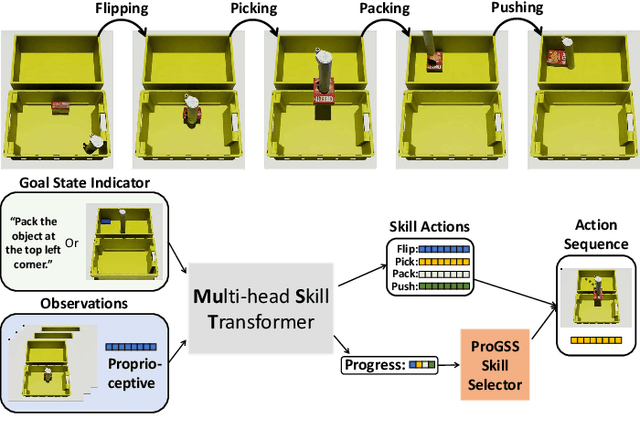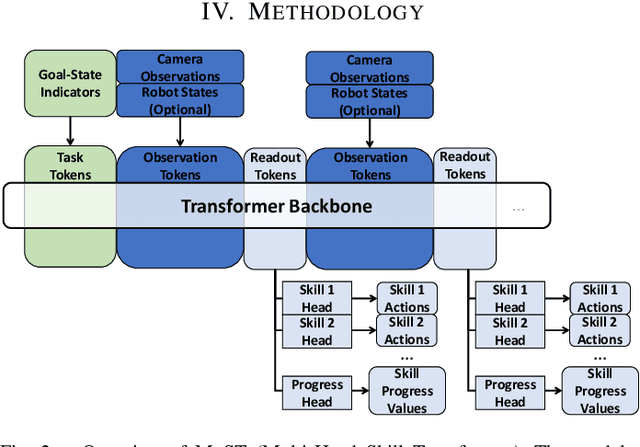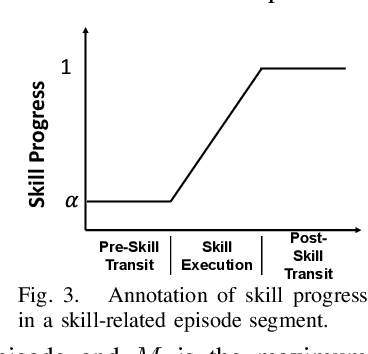Jane Shi
SE(3)-Equivariant Diffusion Policy in Spherical Fourier Space
Jul 02, 2025Abstract:Diffusion Policies are effective at learning closed-loop manipulation policies from human demonstrations but generalize poorly to novel arrangements of objects in 3D space, hurting real-world performance. To address this issue, we propose Spherical Diffusion Policy (SDP), an SE(3) equivariant diffusion policy that adapts trajectories according to 3D transformations of the scene. Such equivariance is achieved by embedding the states, actions, and the denoising process in spherical Fourier space. Additionally, we employ novel spherical FiLM layers to condition the action denoising process equivariantly on the scene embeddings. Lastly, we propose a spherical denoising temporal U-net that achieves spatiotemporal equivariance with computational efficiency. In the end, SDP is end-to-end SE(3) equivariant, allowing robust generalization across transformed 3D scenes. SDP demonstrates a large performance improvement over strong baselines in 20 simulation tasks and 5 physical robot tasks including single-arm and bi-manual embodiments. Code is available at https://github.com/amazon-science/Spherical_Diffusion_Policy.
MuST: Multi-Head Skill Transformer for Long-Horizon Dexterous Manipulation with Skill Progress
Feb 04, 2025



Abstract:Robot picking and packing tasks require dexterous manipulation skills, such as rearranging objects to establish a good grasping pose, or placing and pushing items to achieve tight packing. These tasks are challenging for robots due to the complexity and variability of the required actions. To tackle the difficulty of learning and executing long-horizon tasks, we propose a novel framework called the Multi-Head Skill Transformer (MuST). This model is designed to learn and sequentially chain together multiple motion primitives (skills), enabling robots to perform complex sequences of actions effectively. MuST introduces a "progress value" for each skill, guiding the robot on which skill to execute next and ensuring smooth transitions between skills. Additionally, our model is capable of expanding its skill set and managing various sequences of sub-tasks efficiently. Extensive experiments in both simulated and real-world environments demonstrate that MuST significantly enhances the robot's ability to perform long-horizon dexterous manipulation tasks.
 Add to Chrome
Add to Chrome Add to Firefox
Add to Firefox Add to Edge
Add to Edge